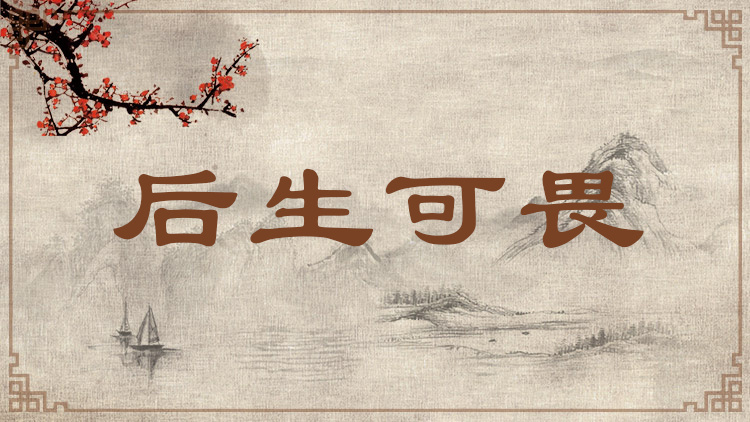Young People Should Be Highly Regarded

年轻人是值得敬畏的。年轻意味着活力、创造力与无限的可能性,意味着未来和希望,他们不可限量,而且会取得超越前辈的成就。因此,长辈应以敬畏、大度之心对待、奖掖、提携后辈。这是孔子所确立的良好的代际关系准则,一直为后世所崇尚与阐扬。后生可畏实际隐含着对新一代的期许和对未来的敬意,隐含着对于人类不断进步与美好前景的坚定信念和乐观态度。
Youth means vitality, creativity, and unlimited possibilities as well as future and hope. Young people have great potential and they will outperform their predecessors. Therefore, the elder should treat, reward, and promote the younger generation with respect and an open mind. This is the norm for governing intergenerational relations established by Confucius, a norm that has been observed by later generations. The view that young people should be highly regarded contains hopes for the new generation and respect for the future. It also demonstrates the firm belief and optimism in the continuous advance of humanity and its future.
引例 Citations:
◎后生可畏,焉知来者之不如今也?(《论语·子罕》)
年轻人是值得敬畏的,怎么知道他们将来赶不上现在的人呢?
Young people should be highly regarded. How do we know that the latecomers will not catch up with us? (The Analects)
◎后生可畏,何代无人?(刘知几《史通·杂说下》)
年轻人是值得敬畏的,哪一代没有杰出人物呢?
Young people should be highly regarded. Which generation does not have outstanding figures? (Liu Zhiji: All About Historiography)
◎后生可畏,不可总守过去也。(释普济《五灯会元·长庆藏用禅师》)
年轻人是值得敬畏的,不能总是固守从前的成就。
Young people should be highly regarded, and we should not rest on past laurels. (Shi Puji: A Compilation of Five Chan Masters' Writings on Buddha's Teachings)
推荐:教育部 国家语委
供稿:北京外国语大学 外语教学与研究出版社
责任编辑:钱耐安





